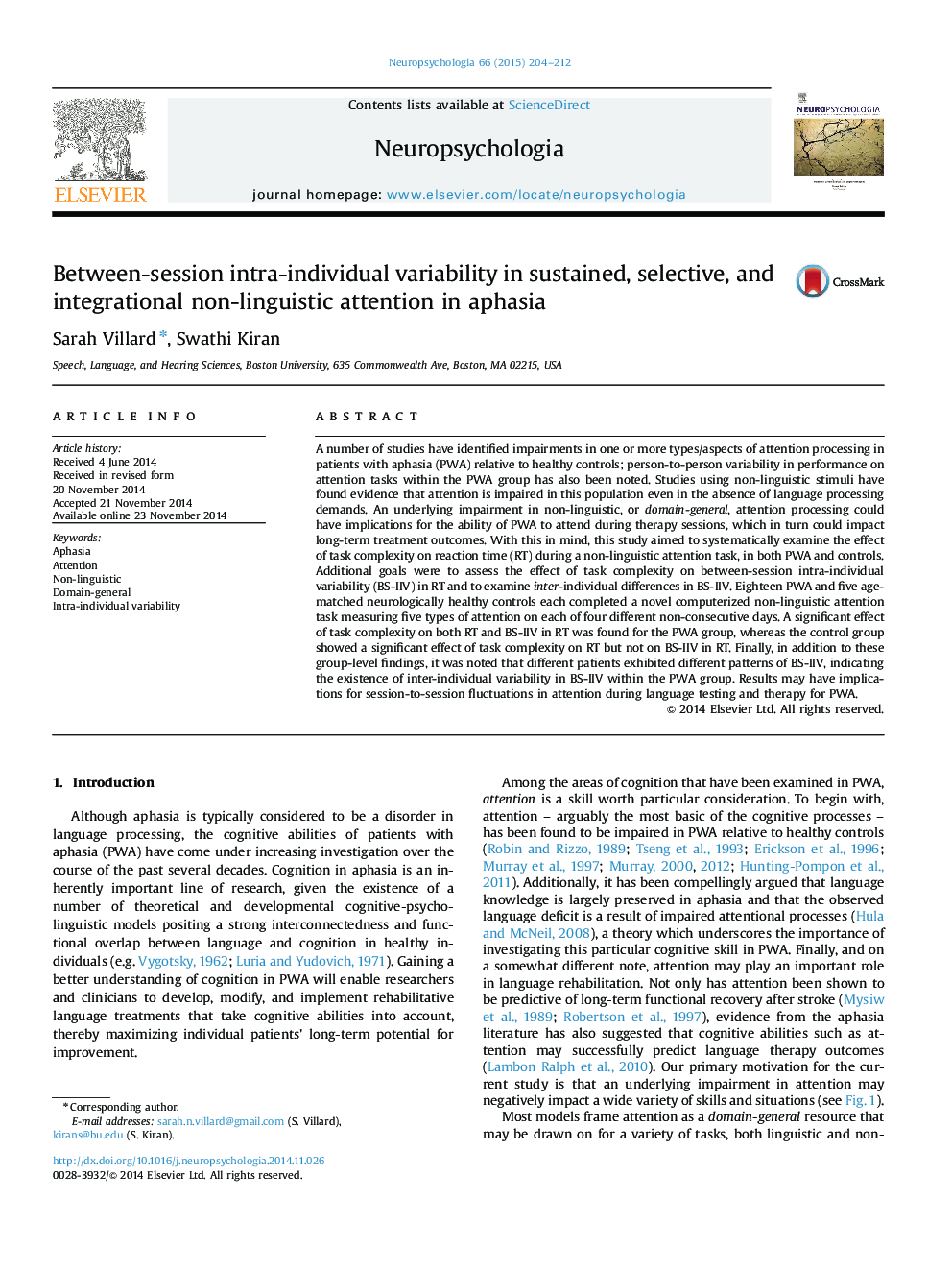| Article ID | Journal | Published Year | Pages | File Type |
|---|---|---|---|---|
| 7320716 | Neuropsychologia | 2015 | 9 Pages |
Abstract
A number of studies have identified impairments in one or more types/aspects of attention processing in patients with aphasia (PWA) relative to healthy controls; person-to-person variability in performance on attention tasks within the PWA group has also been noted. Studies using non-linguistic stimuli have found evidence that attention is impaired in this population even in the absence of language processing demands. An underlying impairment in non-linguistic, or domain-general, attention processing could have implications for the ability of PWA to attend during therapy sessions, which in turn could impact long-term treatment outcomes. With this in mind, this study aimed to systematically examine the effect of task complexity on reaction time (RT) during a non-linguistic attention task, in both PWA and controls. Additional goals were to assess the effect of task complexity on between-session intra-individual variability (BS-IIV) in RT and to examine inter-individual differences in BS-IIV. Eighteen PWA and five age-matched neurologically healthy controls each completed a novel computerized non-linguistic attention task measuring five types of attention on each of four different non-consecutive days. A significant effect of task complexity on both RT and BS-IIV in RT was found for the PWA group, whereas the control group showed a significant effect of task complexity on RT but not on BS-IIV in RT. Finally, in addition to these group-level findings, it was noted that different patients exhibited different patterns of BS-IIV, indicating the existence of inter-individual variability in BS-IIV within the PWA group. Results may have implications for session-to-session fluctuations in attention during language testing and therapy for PWA.
Related Topics
Life Sciences
Neuroscience
Behavioral Neuroscience
Authors
Sarah Villard, Swathi Kiran,
